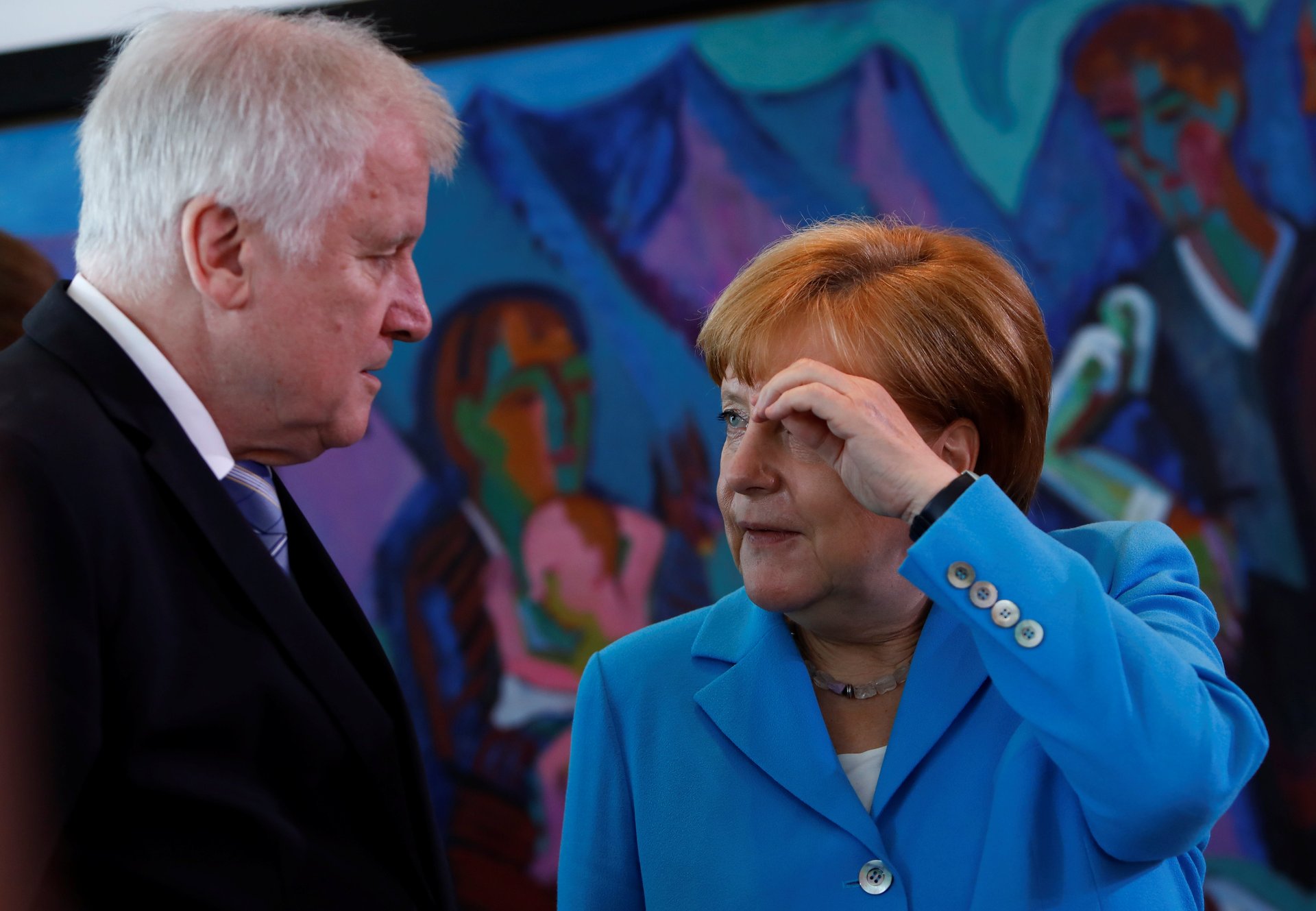Merkel’s migration fight with her arch-frenemy threatens to tear the government apart
Whatever Angela Merkel else has done as the long-term leader of Germany, it’s her historic decision over migrants that continues to define her rule. The chancellor’s decision to open Germany’s borders to over a million refugees since the summer of 2015, has painted her as a savior, as well as a villain.


Whatever Angela Merkel else has done as the long-term leader of Germany, it’s her historic decision over migrants that continues to define her rule. The chancellor’s decision to open Germany’s borders to over a million refugees since the summer of 2015, has painted her as a savior, as well as a villain.
It cost her dearly in the 2017 election as her party bled voters to the far-right Alternative for Germany. Now, just four months after the formation of a new government, a bitter fight over immigration is threatening to tear apart her conservative bloc.
Merkel is currently locked in a showdown with her interior minister and frenemy Horst Seehofer, head of the Christian Social Union, which governs with Merkel’s Christian Democrats and the Social Democrats. He has threatened to break away from the coalition in a bitter dispute over his “migration masterplan.”
He was all set to present the proposal on Tuesday, but Merkel put a stop to it over one point: the German police were to be allowed to reject migrants at the border if they had registered first in another EU country or turn up without papers.
In theory, that could lead to a situation where people are rejected and bounced from country-to-country in the European Union, and Merkel is loath to test European unity by piling more pressure on the likes Greece and Italy, who have borne the brunt of refugee arrivals.
After Merkel nixed Seehofer’s plan, the situation escalated into a war of words that pitched the conservative sister parties against each other. His “crisis talks” with Merkel resolved nothing on Wednesday night, and Thursday’s parliamentary session had to be abruptly called off for the parties to huddle separately. Merkel has now asked for two weeks to work out migration agreements with other EU states.
Seehofer, who also created a new Heimat (homeland) ministry, has been a thorn in Merkel’s side for years. He had even called for her resignation over her open-door policy. Now, however, he’s has a lot more power as interior minister, and is hell-bent on winning back right-wing voters.
The aid organization Pro Asyl said turning people away at the border without due process is illegal and demanded that the conservatives stop their “hysterical” behavior.
While the issue is about immigration on the surface, it is at its core a fight for supremacy between the two conservative parties. Finance Minister Olaf Scholz rebuked both sides, saying, “the job of governing our country is not an episode of ‘Game of Thrones.'”
Seehofer this week went over Merkel’s head to band together with the right-wing leaders of Italy and Austria to discuss an ominous-sounding “axis of the willing” to stop immigration.
This week-long policy fight may seem like a storm in a teacup from afar—and is not the first time the chancellor’s demise has been predicted—but it highlights how the political playing field has changed for Merkel in her fourth term. New right-wing leaders in neighboring Austria and Italy are pushing anti-immigration agendas, populist parties have gained ground across the EU, and Merkel can’t even rely on her conservatives to back her at home.